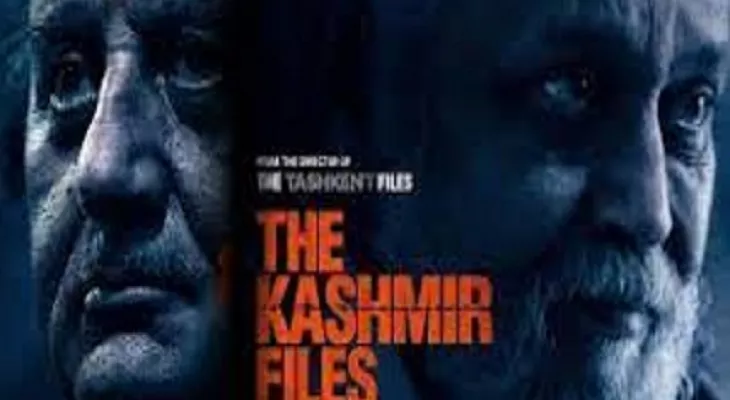The Kashmir Files Succeeds In Presenting Truth About Genocide: Expert

Kozhikode, March 28 : ‘The Kashmir Files,’ Vivek Agnihotri-directed movie, has succeeded in presenting truth about the genocide that occurred three decades back, National Mental Health Programme Advisor, Naresh Purohit, said here on Monday. Addressing a webinar on the ‘Psychological Impact of Kashmir Genocide,’ organised by the Kozhikode-based Institute of Mental Health and Neuroscience (IMHNS), the renowned disaster mental health expert said, “Sigmund Freud said this long ago that repression is the root cause of psychological maladies.
“Pushing inconvenient truths under the rug may give us an illusion of comfort, but healing can never occur,” he added. The Principal Investigator for the Association of Studies for Mental Care averred that the film will go a way beyond pricking your conscience; it lacerates your innermost being and lets it bleed till you come face to face with terrifying and revolting truth. He pointed the flick overwhelms one with a painful feeling of having to witness something frightfully shocking.
“This is not a warning statement, but a call to plumb into the depth of your consciousness to garner courage to confront the truth, so that healing may eventually begin,” he added. The Neuroscience researcher said the proud and learned Kashmiri Pandits were slaughtered, and a staggering number were forced to flee and live-in refugee camps for years. They never got a fair hearing and when that happens, they begin to lose their ability to engage in intra-psychic dialogue about their experiences and that pain eventually finds expression in other forms. He observed that The Kashmir Files is Hindutva’s endeavour to establish the monopoly of Kashmiri Pandits over India’s sorrow – and then use it to oppress the Muslims. Other Experts in the webinar opined that the film has been hailed for shining light on the suppressed story about the exodus of Pandits, but their story has always been known.
But what is new about The Kashmir Files is that it has the audience view, the plight of Pandits through the Hindutva lens, disconnecting Kashmir’s tragedy from the Partition history, even from the rigging of the 1987 Assembly election, which was the immediate trigger for the rise of militancy. Instead, the film creates its own history, it says the guns of militants replaced the “swords of sufis” in the centuries-old Muslim project of Islamising Kashmir. Experts stated that the film does not show a single person in the Army or police uniform fire a bullet even once. Yet, it is known that the Gawkadal massacre took place on January 21, 1990, around the time the exodus of Pandits began. Muslims are shown lusting after Hindu women – and raping them. However, there have been many allegations against security forces of raping Kashmiri women during that time.
“They said that not a single Kashmiri Muslim is killed by militants in the film. But we know thousands of them have perished in the violence there. Muslims are shown to betray Kashmiri Pandit neighbours,” added the experts.
with uni inputs






